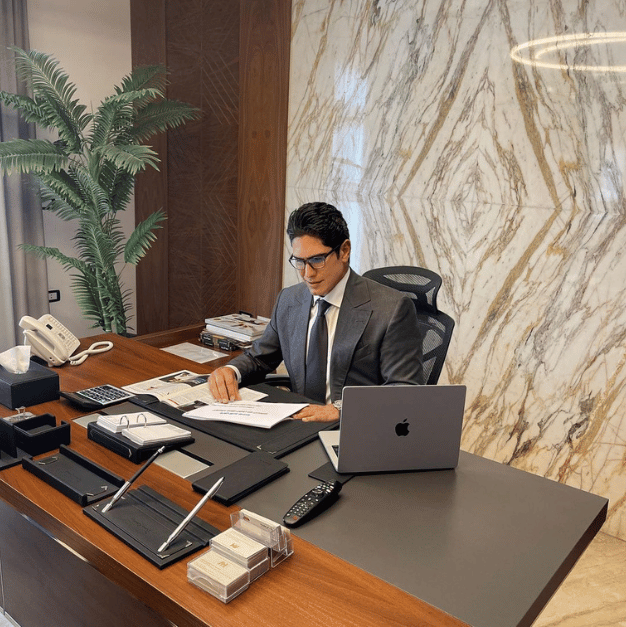The Dos and Don’ts of Men’s Office Etiquette
Office etiquette is crucial for maintaining a professional and harmonious work environment. As a man in the office, adhering to certain dos and don’ts of office etiquette is essential. By following these guidelines, you can demonstrate respect, professionalism, and contribute to a positive work culture. The dos of men’s office etiquette include dressing appropriately, being punctual, respecting personal space, using proper language and tone, and being professional in meetings. On the other hand, the don’ts of men’s office etiquette involve avoiding gossip and office politics, offensive jokes or comments, personal phone calls or excessive internet use, inappropriate or excessive use of social media, as well as negativity and complaining. By understanding and implementing these dos and don’ts, you can make a positive impression and build strong professional relationships in the office.
Key Takeaways:
- Dressing Appropriately: Men should dress professionally and adhere to the dress code of the office, presenting a polished and respectful appearance.
- Being Punctual: Arriving on time shows respect for colleagues and demonstrates professionalism. It is important to value and manage time effectively in the office.
- Respecting Personal Space: Maintain appropriate physical distance from coworkers, respecting their personal space and boundaries in order to create a comfortable working environment.
- Using Proper Language and Tone: Communication should be polite, respectful, and professional. Avoid using offensive language or tone in conversations with colleagues.
- Being Professional in Meetings: Act professionally during meetings by actively participating, listening attentively, contributing constructively, and respecting others’ opinions and ideas.
The Dos of Men’s Office Etiquette
Discover the essential guidelines for perfecting men’s office etiquette. From dressing appropriately to being punctual, respecting personal space, using proper language and tone, and excelling in professional meetings, this section unveils the dos of office etiquette. With practical insights and helpful tips, you’ll navigate the professional world with confidence and make a lasting impression on colleagues and superiors. Don’t miss the chance to enhance your workplace conduct and elevate your career prospects. It’s time to master the art of office etiquette like a true professional.
Dressing Appropriately

Photo Credits @marko_milovicc
When dressing for the office, there are important considerations to keep in mind. Dress professionally and follow the dress code. Wear suitable attire that looks polished and put-together.
Consider the office culture. Some workplaces have a relaxed dress code, while others require more formal attire. Observe and follow the expectations set by the company and colleagues.
Pay attention to personal grooming. Ensure that your clothes are clean, ironed, and well-fitted. Maintain clean and well-groomed hair, nails, and overall appearance.
Consider any specific requirements or guidelines for your role. Certain roles may require uniforms or protective clothing. Comply with these requirements for safety and professionalism.
Remember that dressing appropriately includes footwear and accessories. Choose items that complement your look without being distracting or inappropriate for the office.
By adhering to these guidelines and dressing appropriately, you will project professionalism and respect for the workplace. This contributes to a positive office culture and productive work environment.
Being Punctual

Photo Credits @everinghamwatches
Being punctual in the office is crucial for professionalism and respecting others’ time. Here are some key points to consider:
1. Arrive on time: Being punctual at the designated start time shows dedication and creates a positive impression.
2. Plan ahead: Organize tasks and schedule in advance to allocate sufficient time and avoid rushing.
3. Respect meeting times: Being punctual for meetings maintains the flow and shows respect for colleagues’ time.
4. Notify in case of delay: If unforeseen circumstances prevent timely arrival, inform your supervisor or team members promptly.
5. Timely completion of assignments: Meeting deadlines demonstrates commitment and reliability. Manage time effectively to avoid procrastination.
Being punctual not only displays professionalism but also contributes to a positive work environment. It fosters trust, collaboration, and efficiency among team members. Remember, punctuality reflects your work ethic and respect for others’ time, which are highly valued qualities in any workplace.
Respecting Personal Space
Respecting personal space is crucial for men’s office etiquette. It is important to incorporate the concept of personal space into our daily interactions with colleagues. By maintaining a respectful distance and being mindful of their boundaries, we can ensure a comfortable and respectful work environment.
Here are some key guidelines to follow:
1. Give people space: When interacting with colleagues, always maintain a physical distance. Avoid standing too close to them, as it can make them uncomfortable.
2. Avoid touching without consent: It is essential to respect personal boundaries and not touch colleagues without their permission. This includes refraining from hugging, patting on the back, or any form of physical contact.
3. Respect personal belongings: It is important to ask for permission before touching or moving someone else’s belongings. Treat their desk, personal items, and computer screen with utmost respect.
4. Be aware of body language: Pay attention to your own body language and ensure that it does not make others uncomfortable. Avoid crossing your arms or invading someone’s personal space with gestures.
5. Be mindful of noise levels: Respect the need for a quiet work environment. Avoid speaking too loudly or engaging in loud activities that can disrupt your colleagues’ concentration.
6. Ask before entering someone’s workspace: Prior to entering a colleague’s workspace or office, it is polite to knock and wait for their permission. This shows consideration and professionalism, as you respect their privacy.
7. Use appropriate communication channels: Instead of leaning over or interrupting colleagues at their desk, utilize email or instant messaging. This not only maintains personal space but also allows for uninterrupted work.
By respecting personal space, we contribute to a harmonious and respectful office environment. This fosters positive relationships among colleagues and ultimately promotes productivity.
Using Proper Language and Tone
Using proper language and tone is essential for maintaining professionalism and promoting effective communication in the workplace.
It is crucial to speak clearly and confidently, articulating thoughts with assurance when interacting with colleagues or superiors. This ensures that messages are understood and received positively.
It is also important to use appropriate language, avoiding slang, jargon, or offensive words that may be deemed inappropriate in a professional setting. Instead, employ professional, respectful language that is free from any discriminatory or offensive remarks.
Being mindful of the tone of voice is equally vital as it greatly influences how messages are perceived. Adopting a polite and respectful tone conveys sincerity and professionalism.
Active listening should be practiced, allowing others to speak without interruption or talking over them. This shows respect for their opinions and ideas.
Non-verbal cues should not be overlooked as communication goes beyond words. Body language, facial expressions, and gestures communicate messages as well.
Maintaining appropriate eye contact and using positive and open body language demonstrates attentiveness and engagement.
It is also important to adapt to the audience when communicating. Adjusting language and tone based on who is being spoken to is crucial. Colleagues may require a more informal tone, while superiors or clients may necessitate a more formal approach.
By incorporating proper language and tone in the workplace, a positive and professional environment can be created that promotes effective communication and collaboration.
Being Professional in Meetings

Photo Credits @ahmedabohashima
Being professional in meetings is crucial for maintaining a positive work environment. Here are some guidelines to follow:
1. Prepare: Review the meeting agenda and relevant materials beforehand to be well-informed and prepared.
2. Arrive on time: Punctuality shows respect for others’ time and professionalism. Aim to arrive early to set up.
3. Dress appropriately: Consider the company culture and the meeting’s nature. Maintain a professional appearance.
4. Active listening: Pay attention, maintain eye contact, and avoid distractions. Take notes if necessary.
5. Contribute thoughtfully: Share relevant insights and ideas, without interrupting others.
6. Speak clearly and confidently: Use a clear and concise communication style, avoiding jargon.
7. Respect others’ opinions: Be open-minded and receptive to different viewpoints, expressing thoughts respectfully and constructively.
8. Avoid distractions: Silence your phone and focus solely on the discussion.
9. Follow the agenda: Stay focused and avoid going off-topic, keeping the meeting productive.
10. Wrap up effectively: Summarize key points and actions, thank participants, and clarify next steps.
By adhering to these guidelines, you can demonstrate professionalism in meetings and contribute to a positive work environment. Remember, meetings are opportunities to collaborate and make progress, so approach them with a professional mindset.
The Don’ts of Men’s Office Etiquette

Photo Credits: Www.Moderngentlemanmagazine.Com by Christian Carter
If you want to maintain a professional image and create a pleasant work environment, there are certain things you should avoid. In this section, we’ll explore the “don’ts” of men’s office etiquette. From steering clear of gossip and office politics, to avoiding offensive jokes or comments, and even refraining from excessive use of social media, discover the key actions to steer clear of in order to maintain a positive and respectful workplace. Let’s dive in and improve our office conduct!
Avoiding Gossip and Office Politics
Avoiding Gossip and Office Politics is important for maintaining a professional workplace.
1. Avoid gossip and spreading rumors about colleagues. Gossip damages relationships and creates a toxic atmosphere in the office.
2. Talk about work-related topics and avoid discussing personal matters that are not relevant to the tasks at hand. This helps maintain a professional boundary between colleagues.
3. Be careful about the information you share with others. Avoid discussing confidential or sensitive matters that could harm individuals or the company.
4. If you witness gossip or office politics, remove yourself from the situation. Refusing to participate and distancing yourself from negative conversations shows your commitment to professionalism.
5. Instead of gossiping, focus on building positive relationships with your colleagues. Encourage open communication, collaboration, and respect for each other’s ideas and perspectives.
6. Address conflicts or concerns directly with the individuals involved or seek guidance from a supervisor or HR department. This allows for a proper resolution without unnecessary drama or gossip.
By avoiding gossip and office politics, individuals contribute to a harmonious and productive work environment. This fosters cooperation, trust, and a positive atmosphere that benefits everyone.
Avoiding Offensive Jokes or Comments
Men in the office should make a conscious effort to avoid making offensive jokes or comments in order to maintain a professional and respectful environment. By refraining from engaging in such behavior, individuals can prevent the creation of an uncomfortable workplace and minimize the risk of discrimination or harassment claims. To achieve this, it is important to consider the following points:
1. Utilize appropriate language: It is crucial to use language that is devoid of any offensive or derogatory terms. Individuals should refrain from making comments that target someone’s race, gender, religion, or any other personal characteristic.
2. Show respect for cultural differences: People should be mindful of cultural sensitivities and avoid making jokes or comments that may be offensive to those from different cultural backgrounds.
3. Understand personal boundaries: Knowledge of personal boundaries is essential. Individuals should avoid making comments that invade someone’s personal space or make them feel uncomfortable. It is important to create a safe and inclusive environment for all colleagues.
4. Be cautious with humor: Individuals should exercise caution when using humor, as certain jokes may be inappropriate or offensive. It is advisable to avoid any form of humor that could potentially be perceived as offensive or hurtful.
5. Think before you speak: It is crucial to pause and reflect on the potential impact of one’s words before speaking. Individuals should consider how their comments may be interpreted by others and whether they have the potential to be offensive or disrespectful.
By consciously avoiding offensive jokes or comments, individuals contribute to the establishment of a healthier and more inclusive workplace environment where everyone feels respected and valued. This ensures the maintenance of professionalism and positive interactions among colleagues.
Avoiding Personal Phone Calls or Excessive Internet Use

Photo Credits @aloricahonduras
Personal phone calls or excessive internet use can harm productivity and professionalism at work. Here are guidelines to avoid these distractions:
1. Prioritize work: Make work the top priority during office hours. Limit personal phone calls to emergencies. Focus on tasks and deadlines without personal distractions.
2. Limit personal phone use: Minimize personal phone calls to designated breaks or lunchtime. Avoid using your phone for social media or entertainment during work hours.
3. Set phone on silent or vibrate: Minimize disruptions by setting your phone on silent or vibrate mode. Resist the temptation to check it every time it rings or vibrates to maintain focus.
4. Use internet for work-related tasks only: Avoid browsing the internet for personal reasons during downtime. Use the internet strictly for work-related purposes.
5. Take breaks away from screens: Use breaks to relax and recharge away from screens. Activities like walking, conversing with colleagues, or finding a quiet space can help clear your mind.
By avoiding personal phone calls and excessive internet use, you can maintain professionalism, focus on work responsibilities, and contribute to a productive work environment.
Avoiding Inappropriate or Excessive Use of Social Media
To maintain professionalism in the workplace, it is important for men to avoid inappropriate or excessive use of social media. This behavior can have negative effects on their reputation and job performance. Here are some key points to keep in mind:
1. Limit personal social media usage: It is recommended to use social media sparingly during work hours in order to prevent distractions and decreased productivity.
2. Refrain from posting controversial or unprofessional content: It is crucial to avoid sharing offensive, discriminatory, or inappropriate material on social media. This includes sensitive information about the workplace or colleagues.
3. Be mindful of privacy settings: Take the time to properly configure privacy settings in order to control who can view your social media profiles and posts. This helps maintain a separation between your personal and professional life.
4. Think twice before connecting with colleagues on social media: Consider the potential impact on professional relationships before connecting with colleagues on social media. Be selective and cautious about the connections you make and the content you share.
5. Maintain a positive and professional online presence: Utilize social media platforms to showcase your expertise, skills, and professional achievements. Share relevant and insightful content related to your industry or field.
By avoiding inappropriate or excessive use of social media in the workplace, men can preserve a professional image, protect their privacy, and prevent any negative consequences.
Avoiding Negativity and Complaining
Avoiding Negativity and Complaining in the workplace is crucial for maintaining a positive and productive office. Here are some important points to consider:
1. Focus on Solutions: Instead of dwelling on problems, focus on finding solutions. This not only helps to resolve issues but also demonstrates a proactive and problem-solving attitude.
2. Maintain a Positive Attitude: Avoid negative conversations and complaining about work. Cultivate a positive attitude and try to find the silver lining in challenging situations. This can boost morale and create a more optimistic workplace.
3. Practice Gratitude: Instead of complaining about what is lacking, focus on appreciating what you have. Cultivate a gratitude mindset and express appreciation for the good aspects of your work environment. This can shift your perspective and reduce negativity.
4. Communicate Constructively: If you have concerns or issues, communicate them constructively. Avoid venting or complaining without offering solutions. Use clear and respectful language when discussing problems, and be open to collaborating with others to find resolutions.
5. Seek Support: If you feel negative or overwhelmed, seek support from trusted colleagues or supervisors. Discuss your concerns professionally to alleviate stress and find support or solutions.
By avoiding negativity and complaining, you contribute to a harmonious and positive work environment that fosters productivity and professional growth.
Frequently Asked Questions
What are the dos and don’ts of men’s office etiquette in terms of dress and grooming habits?
When it comes to dress and grooming in the corporate world, there are several dos and don’ts to keep in mind. Always make sure to dress appropriately in a formal suit, such as a black or navy suit, for business settings. Avoid mismatched clothing, like wearing a suit jacket and pants in different colors, or clashing shirt colors. Coordination is key. Ensure that your attire is clean and tidy, with shirts tucked in throughout the day. When it comes to grooming, style your hair in a conservative and neat manner, and maintain a regular shaving routine. Keep in mind that visible piercings and tattoos are generally considered inappropriate in the corporate dress code.
How should men navigate the changing social norms and etiquette in the workplace?
In today’s age of renewed feminism, it is important for men to adapt to evolving social norms and etiquette in the workplace. One of the key aspects is practicing active listening and dropping assumptions about women’s experiences. It is crucial to treat women with equal respect and avoid condescension or objectification. Deference in the workplace should be based on rank and professionalism, rather than gender. Terms like “hons,” “sweeties,” or “babes” should be avoided as they can send the wrong signals. Men should also be cautious about physical contact and only touch women in appropriate situations, such as consoling or congratulating.
What is the proper etiquette for shaking hands in a professional setting?
When it comes to shaking hands in a professional setting, it is important to strike the right balance. Ensure that your handshake is firm but not overly aggressive. It is also essential not to dial back your handshake for women, as this may be perceived as condescending. Aim for a confident and respectful handshake, considering the person’s rank or position rather than their gender. Remember, shaking hands is a gesture of mutual respect and should be done with professionalism.
What are some tips for paying on a date in a professional setting?
Paying on a date in a professional setting can sometimes be tricky. As a general rule, the person who does the inviting should offer to pay. It is important to consider the dynamics and the preferences of the individuals involved. If you are long-time colleagues, it may be acceptable to split the check. In any case, it is always helpful to discuss and establish the payment plan beforehand to avoid any potential awkwardness. Remember, the goal is to create a comfortable and socially acceptable atmosphere during the date.
How should men handle holding doors in the workplace?
Holding doors in the workplace is an important gesture of mutual respect. It is appropriate for both men and women to hold doors for each other. It is essential to be mindful of the situation and the people involved. Hold the door for others without making assumptions based on gender. Remember that the intention is to show politeness and respect, regardless of whether you are the opener or the one being assisted.
What are the negative impacts of poor workplace etiquette for men?
Poor workplace etiquette can have various negative impacts on men in a professional setting. It can create a negative perception of their professionalism and credibility. By not adhering to proper workplace etiquette, men may come across as lacking in social skills, which can lead to their ideas or contributions being undervalued. Poor etiquette, such as engaging in office politics or making fun of colleagues, can damage work relationships and create a toxic work environment. It is important for men to adopt an inquisitive approach and strive towards maintaining proper workplace etiquette to create a respectful and productive environment.
